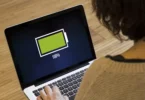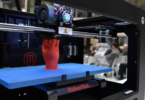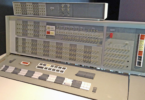8 Major Uses of Laptop in Daily Life
Laptop computers are used by students, professionals and home users for an array of functions ranging from work coordination to video communication and data analysis – not forgetting entertainment such as listening to music or playing video games!
People use laptops for email functionality, including sending and receiving email. Laptops may also be useful in healthcare, weather forecasting and other tasks.
1. Communication
Laptops provide students with numerous means of communication. Students rely on them for classroom learning, accessing online education courses and communicating with teachers through video communications. Furthermore, these devices assist with telephone interactions among family, friends and company employees as well as shopping services as well as watching videos or playing music files.
Scientific research teams also utilize drones as part of their data collection efforts in various locations and to test information, making this resource particularly helpful when trying to prove theories or create new facts.

8 Major Uses of Laptop in Daily Life
Laptops are essential tools for businesses that rely on employees travelling or working from different locations. From providing customer assistance to training other workers, laptops ensure productivity regardless of where employees may be. In finance departments, they serve as storage for employee files as well as collaborative project collaboration among various companies, while export-import departments rely heavily on them in processing paperwork, tracking shipments, and communicating with buyers.
2. Education
Students use laptops to enhance their education by conducting online reading, taking exams and filling out forms for entertainment by watching YouTube videos, playing games or instant messaging. They can also write their assignments using a laptop, which helps develop typing skills while honing writing skills and creativity – as well as collaborate on group projects with fellow classmates.
But many experts are worried that laptops could interfere with students’ learning. A recent study discovered that when students used their laptops during class, most often not for accessing course supplemental material or browsing the web; rather they took notes, sent emails, instant-messaged friends, accessed instant messenger services or played games – this being their own self-inflicted distraction which resulted in lower ratings of learning, perceptions of lecture clarity and comprehension of course materials.
Suppose you want to use your laptop for education purposes. In that case, it is advisable to turn off all social media apps and games before class starts in order to focus on learning rather than any distractions from outside sources.
3. Entertainment
Laptops play an indispensable part in modern entertainment. People use them to watch movies, listen to songs, and even play games; some specifically designed for gaming like Alienware, offer high-tech specs like processor, RAM capacity and storage space for optimal enjoyment.

Laptops are increasingly being utilized in the field of art and design. Many laptops come equipped with paint tool/software that enables users to draw objects with the mouse, saving them locally for future reference. Some people also utilize laptops to stay current with current news trends or for research and learning purposes.
Many people also use laptops for online transactions, including recharge and booking services and bill payment. There are software programs available that help people manage household tasks effectively, such as payment control, reminders and expense tracking; some even create graphics that show homeowners exactly where their money is going each month.
4. Business
Laptops have become indispensable tools in business, enabling employees to store and access data at any time from any location – especially those who must manage their workload at home or while travelling.
These devices can also serve a number of security-related needs, such as CCTV monitoring and staff tracking. Medical professionals utilize them for patient record storage, which allows for better diagnosis of ailments.
Laptops have become an invaluable way of fulfilling hobbies or exploring interests outside the workplace, whether this involves surfing the Internet or downloading programs designed specifically for this task. Many artists prefer working on their art with laptops because of its greater freedom and precision; Windows-based laptops even come equipped with an application to save their creations for future reference! Others have even started using laptops as banking and stock trading devices!
5. Gaming
People looking for entertainment at home often turn to their laptop and watch movies or TV shows, listen to music, play video games or get involved in online hobbies and communities to relax after an exhausting day. This provides them with an immersive entertainment experience which helps them relax after a stressful day.
Gaming laptops boast fast processors and speeds to handle multiple tasks simultaneously and deliver an optimal gaming experience. They are manufactured and designed specifically to deliver this experience smoothly.
Business use laptop computers extensively as part of their workspace setup, for inventory and customer management, transaction processing and traceability systems, e-bill distributions and much more.
Healthcare is another key application of laptops. Doctors and nurses alike rely on laptops to record patient information, perform diagnostic tests remotely, communicate with colleagues remotely, monitor vital signs such as blood pressure, glucose levels and oxygen saturation in a patient, and measure pulmonary function via spirometry – not forgetting using them to look up medications or health conditions using their laptops!
6. Healthcare
Healthcare providers are increasingly utilizing healthcare laptops as an access tool and notes repository while also serving to monitor patients remotely – aiding patient outcomes while decreasing disease spread.
Laptops are often preferred over desktop PCs in healthcare due to their portability, size and power efficiency. Telehealth appointments also make telehealth appointments possible from any location at any time, and having an uninterrupted battery life is especially essential for medical personnel who spend most of their day at work.
Many manufacturers manufacture durable, rugged and cost-effective laptops suitable for healthcare industry use. Apple’s MacBook Pro stands out as an example, featuring a lightweight design with high-resolution display and a powerful processor capable of running most common medical software smoothly without any lags or slowdowns; additionally, this laptop provides ample storage capacity enabling doctors to keep patient records organized in one central place while supporting various peripheral attachments.
7. Weather forecasting
No family today could exist without laptops in their household, whether for watching movies, performing quick searches or communicating via video chat with family and friends. Laptops have also become ubiquitous in schools and colleges for teaching digital learning and distance education purposes.
Weather forecasting relies on using a laptop computer to perform calculations at high speed and predict weather conditions for several days ahead based on various factors and complex calculations.
Supercomputers have greatly contributed to weather prediction accuracy through massive computation. By running large quantities of meteorological calculations simultaneously, near-probable predictions can be made almost instantaneously. AI could further refine these forecasts by incorporating insight from multiple models into one system that produces results more rapidly and accurately than humans could. This would allow accurate weather predictions down to zip code levels – something Russ Schumacher and Aaron Hill received funding for from NOAA in order to explore machine learning applications that improve high-impact weather forecasting applications.
8. Storage
Alongside memory, laptop computers offer additional storage such as hard disc drives or solid-state drives that record long-term data, enabling you to save files and programs you frequently access on a long-term basis.
If you love video games, a laptop can also make for an excellent way to enjoy playing them at home or when travelling. Download games onto it and play whenever you feel bored; plus it makes watching movies and music, browsing the web or surfing social networks easy and portable!
Students can also utilize laptops to study. They can access various websites to complete homework or search for universities where they will study, interact with their teachers using video communication software, learn subjects by watching tutorials on video players on their laptops, set study sessions for themselves at times that best suit them and play after studying; make notes without needing books; save both time and money!





